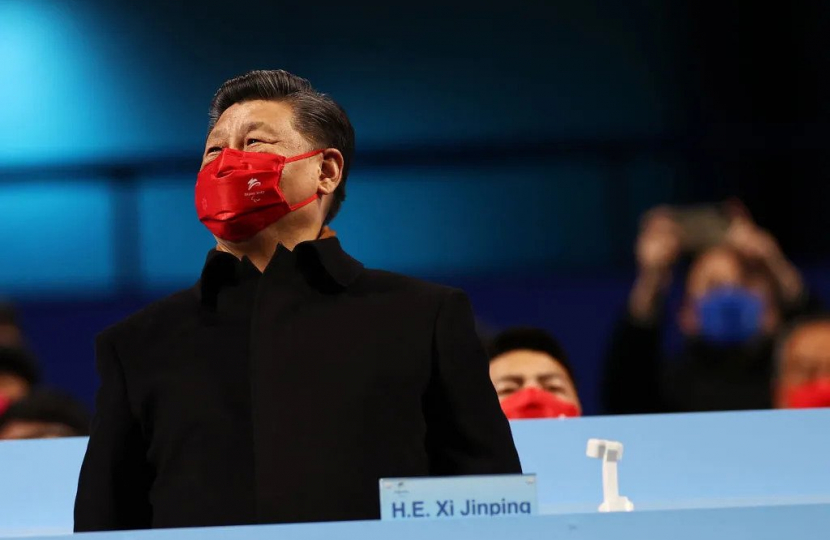
Last year, Xi Jinping celebrated the centenary of the Chinese Communist Party with a stark warning: “We must take resolute action to utterly defeat any attempt toward Taiwan independence”. In other words, Beijing remains committed to transforming their “One China” stance from legal fiction into geopolitical fact by any means necessary.
With Russia’s Vladimir Putin engaged in a horrific invasion of Ukraine, it is vital we consider Taiwan’s global position, and stay vigilant to the possibility of another democratic ally facing aggression.
Chinese efforts to isolate Taiwan hinge around preventing it from gaining recognition within the international community: whether by pressuring states not to seek free trade agreements, insisting that diplomatic ties exist with the People’s Republic of China alone, or blockading its participation in international organisations. The name “Chinese Taipei” in the medal table at Beijing’s Winter Olympics reveals the reach of the One China doctrine and the total denial of Taiwan as anything beyond provincial status within China
Isolation can only increase Taiwan’s vulnerability to Beijing. Most recently, Taiwan has been denied the opportunity to participate in the World Health Assembly, in which they had held observer status, in retaliation for the 2016 election of nationalist premier Tsai-Ing Wen.
Even after the outbreak of Covid-19, Taiwan was blocked from attending technical briefings from the World Health Organisation. Nevertheless, the Taiwanese response to Covid has been exemplary, registering one of the world’s lowest death rates while maintaining a robust economic performance with a growth rate above 6 per cent throughout 2021.
While Taiwan’s exclusion from important international organisations undoubtedly affects its safety, prosperity, and health; it is also to the detriment of the organisations forced to do without the important contributions which Taiwan could offer.
Britain can certainly go further in our efforts to welcome Taiwan into the global community. All calls for integration into the UN or WHO will fall on Beijing’s wilfully deaf ears.
We share many of the same values, not least a mutual recognition of the importance of free trade as a vehicle for global ambition. Regardless of their geopolitical position, it would be perverse for Britain not to seek closer functional ties with a potentially vital partner as we plan our global future.
One key tenet of this strategy will emerge from the benefits of joining the Comprehensive and Progressive Agreement for Trans-Pacific Partnership (CPTPP) as its first non-founding, European member.
Britain took one step closer to accession last month and we are in the final phase of the application process. International Trade Secretary Anne-Marie Trevelyan travelled to Indonesia, Japan, and Singapore to strengthen regional ties. Membership will be critical to removing 95 per cent of tariffs with nations across the Asia-Pacific who, in turn, will enjoy greater opportunities for their goods and services in Britain.
The CPTPP is proving to be yet another front to the Sino-Taiwanese proxy battle as both Beijing and Taipei have launched bids for membership. The One China doctrine will come to the fore with the two in direct competition.
For China, securing CPTPP membership is not paramount. Denial of Taiwan’s membership will be a concrete demonstration of their control. But Taiwan’s continual exclusion hinders their international competitiveness and further integration into the Indo-Pacific.
Excluding China would deal a momentous blow to “Xi Jinping Thought” and affirm support for Taiwan. The CPTPP requires member states to protect fundamental rights including freedom of association and the elimination of forced labour. On this, pictures of abuse of Uighur Muslims in Xinjiang province speak for themselves.
Britain should seriously consider declaring our support for Taiwan’s membership to make the case for international inclusion away from the well-trodden ground of the United Nations. Beyond the economic benefits of closer trade links to a soaring economy, it would be an opportunity to back calls for liberty and self-determination.
Appeared in CityAM 10 March 2022

